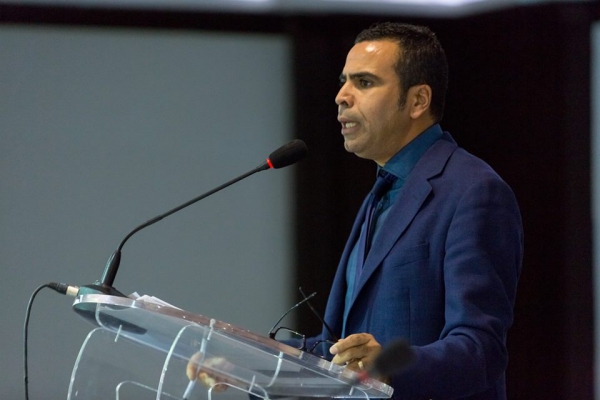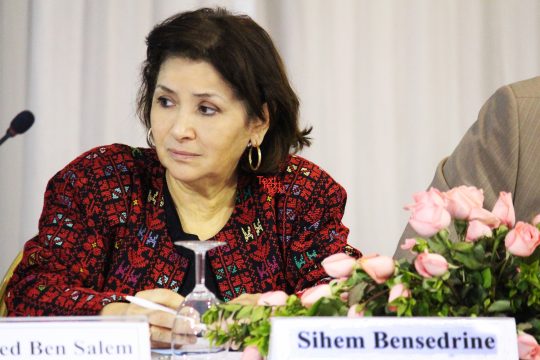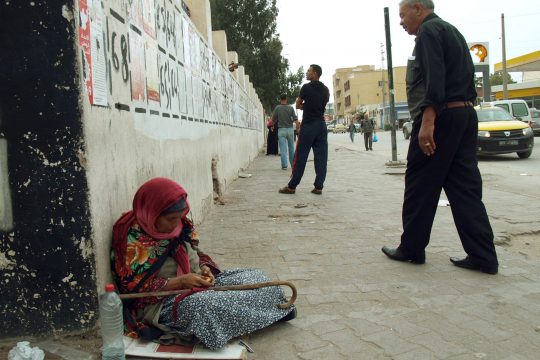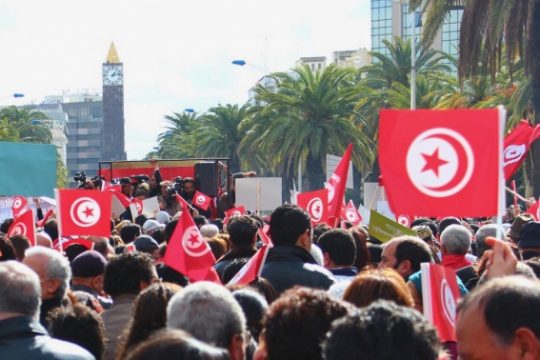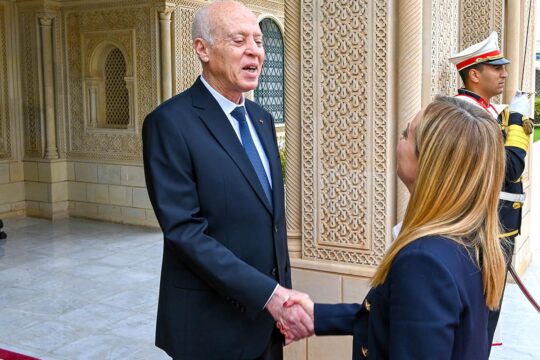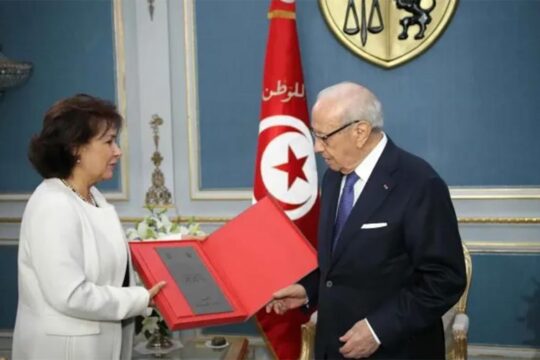Wahid Ferchichi is a professor of public law, expert in transitional justice and researcher at the Centre Kawakibi for democratic transitions, an independent research body on developments in Tunisia since the political upheavals of January 2011. After the fall of Ben Ali, he was amongst the first to demand transitional justice (TJ) in Tunisia. Three years after the passing of an organic law on TJ and nearly two years after the setting up of the Truth and Dignity Commission, his recent address to the national congress on transitional justice* reflects his disillusion with a process called for enthusiastically by civil society five years ago. Here he talks to JusticeInfo.
JusticeInfo: Why, in the presentation you made to the inaugural session of the national congress on transitional justice, does your evaluation of the process seem so bitter?
Wahid Ferchichi: We started talking about transitional justice in Tunisia as early as January 2011. At the time I was the Tunis coordinator for the International Center for Transitional Justice (ICTJ). I was also part of the Commission of Inquiry on economic malpractice and corruption, set up just after January 14 and headed by the late and highly respected Abdelfettah Amor. Our hopes were high then: we wanted to restore people’s rights, the rights of all the victims in this country from the time of President Bourguiba, including the Ben Ali period and the revolution. But, as the years passed, we have had more and more doubts about the outcome of the TJ process. We do not know, for example, where the files are of the ex-minister of Human Rights and Transitional Justice under the troika that was in power from the end of 2011 to the beginning of 2014. Because there has been no transparency about financial reparations for victims, we do not know how many people have benefitted from the various compensation mechanisms, including integration into the public service. Trials linked to the Tunisian revolution are a mystery, and provoke feelings of frustration and injustice among victims’ families. Why have so many been acquitted among the security force bosses at the time of the peaceful uprising of December 17, 2010 to February 2011 during which so many people were killed and injured in the demonstrations? The sentences for these cases have been reduced from 20 years to 6 months. And some security force officials have refused even to appear in court, or have come escorted by members of the police forces, which is the height of arrogance. Today there is no more talk of the victims of the revolution. It is as if we had moved on. But how can we reform the institutions without establishing the responsibilities of each person in past violations? And so, we have returned to our existential questions of early 2011. The initial dream is fading and dying or, even worse, is being turned on its head.
Why did you attribute a big part of the crisis in the process to the Constituent National Assembly (November 2011- January 2014), which approved the law on TJ and chose the members of the Truth and Dignity Commission?
I am one of the people who helped draft the TJ law in 2012-2013. But after it was passed by the Constituent National Assembly, it was deformed. It was encumbered by violations that have not happened in TJ elsewhere, namely electoral fraud and forced exile. And these violations, as we have warned, will complicate the work of the Truth and Dignity Commission (IVD). In addition, the selection of members of the IVD, set up with a Constituent National Assembly dominated at that time by the Islamists, was partisan in its choice of the 15 Commissioners. Hence the flood of resignations and dismissals that have followed.
Who is currently responsible for the threats to TJ in Tunisia?
I would share the responsibilities according to those involved in the process. First, there is the government, which has not appointed in its midst a TJ coordinator, who could, for example, help the work of the IVD in access to the archives. Such a position should not, however, be a ministerial post. I would also like the President of the Republic to clarify his position on TJ, especially in relation to the current version of his proposed law on “economic and financial reconciliation”, which is likely to undermine the prerogatives of the IVD. The Commission should, for its part, be more transparent about its internal workings. Its image and credibility have been affected by the resignation of four of its members and the firing of three others by the Commission Board. As a result, its meetings are no longer within the law, because they take place with two-thirds of members absent. I call on the parliamentary president to convene a debate with the IVD, the various ministers involved and civil society. Half way through the term, we need such a debate in Parliament to talk about problems of the Truth Commission and the dangers threatening the process, which will continue after the IVD’s mandate expires.
* The national congress on transitional justice took place in Tunis on November 2 and 3, 2016, with the participation of the Truth and Dignity Commission (IVD). It was organized by Avocats sans Frontières (Lawyers without Borders -- ASF) and the Tunisian Forum for Economic and Social Rights (FTDES). Its aim was to draw up a series of recommendations to ensure the smooth operation of the TJ process.



